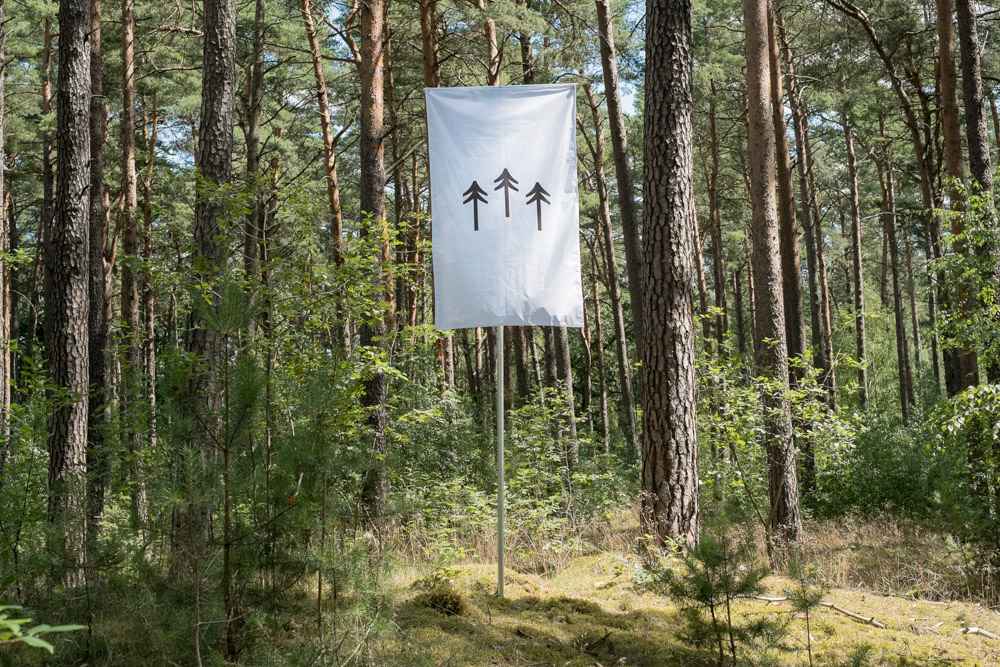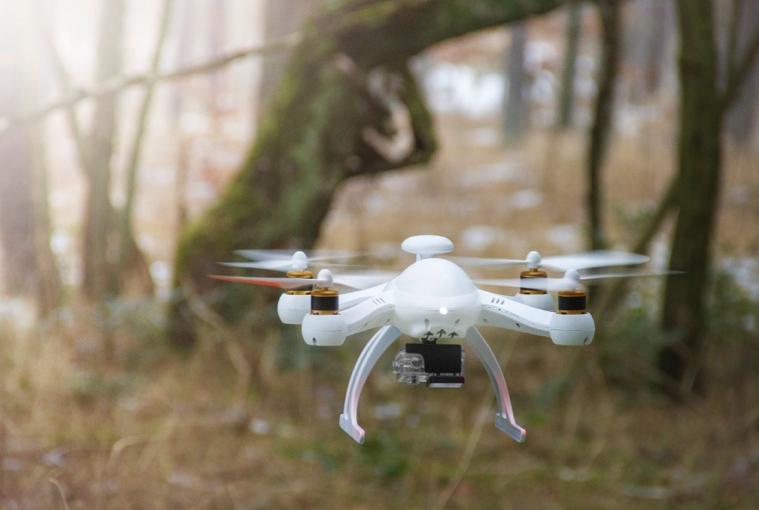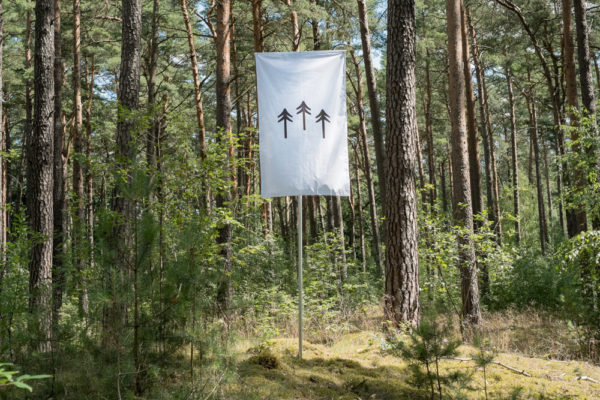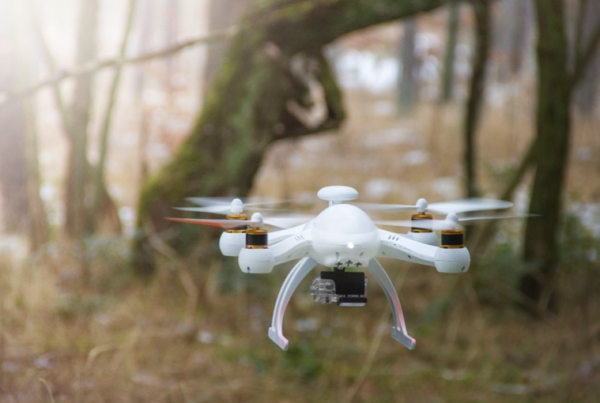They call it ‘terra0‘. Originally an art project initiated by the design students from the German University of Arts it is now run by developers and researchers from the FZI (Research Center for Information Technology) in Berlin and the Wuppertal Institut. The team strives to combine the German fascination for forests and the affinity with technology to challenge societal, political, and economic systems.
We like to think of a forest filled with pines and electronics where deer stroll peacefully past computers as if they were flowers with spinning blossoms.
In the ‘terra0′ concept, blockchain technology is combined with machine-learning, remote sensing, and smart contracts to basically give a forest the ability to own itself. With the help of drones and satellites, the forest could evaluate its growth and economic value, giving it the capabilities to interact with humans as a peer not a tool. At this point in time, the team bought a piece of land, sold it to the forest on the land thus creating the first self-owned augmented biological unit.
What kind of economic activities would such an entity choose to take on? What will its perspective on human interactions be and what will happen when it is capable of self-replicating? Will it see humans as a threat to its survival, as we have seen in many science fiction movies?
Now one might wonder how this decentralized autonomous forest is related to our open source lab. Zero Emission Cities, as one of our research fields, might give you an idea. Without taking too much away from our work to come, just imagine this:
By transferring the concept of ‘terra0′, you can create all sorts of autonomous agents. Essentially almost every important infrastructure within a city could become self-organized. Of course not without parameters matching the global climate goals, for example. When the future intermodal mobility system decides to take a day off and forces you to walk or bike at least you know it is for the environment.





